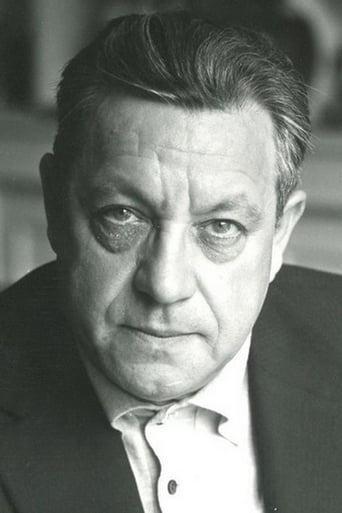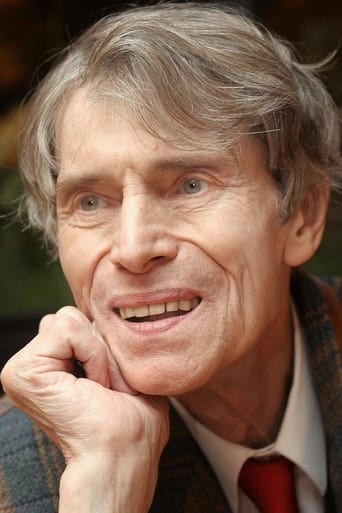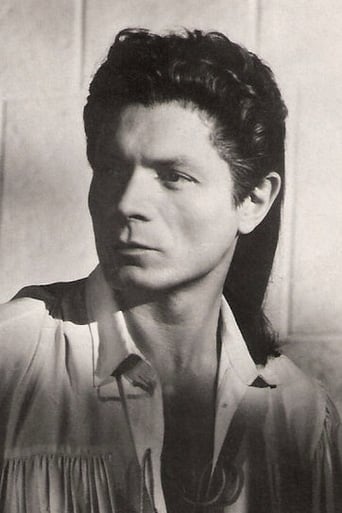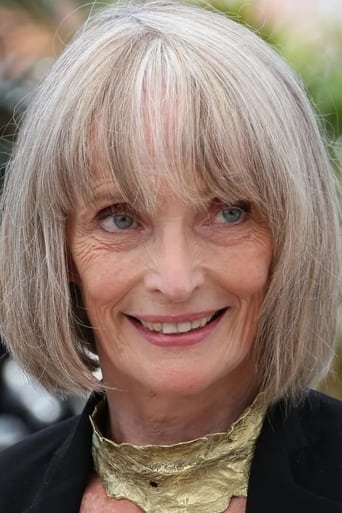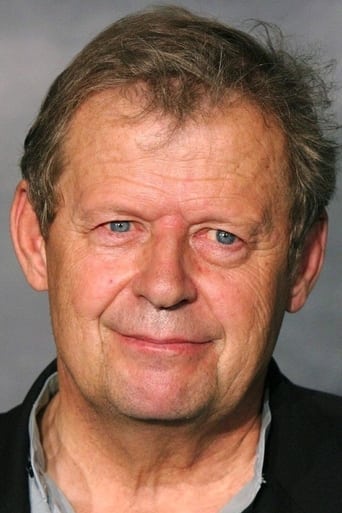Wordiezett
So much average
ReaderKenka
Let's be realistic.
PodBill
Just what I expected
Kinley
This movie feels like it was made purely to piss off people who want good shows
PassPopcorn
The Milky Way ends like a documentary would – with the following sentences: Everything in this film concerning the Catholic religion and the heresies it has provoked, especially from the dogmatic point of view, is rigorously exact. The texts and citations are taken either direct from Scripture, or modern and ancient works on theology and ecclesiastical history. This perfectly explains what its topic is. Having been raised a Jesuit, Luis Buñuel developed an obsession with religion, which he incorporated in his movies. His negative portrayal of the aforementioned caused most of his movies to be found extremely offensive, and some were even banned. The Milky Way is one of these controversial movies.The story is not easily summarised, since this is a surrealist movie – some scenes seem to be randomly inserted into it to break its continuity. Mostly, it follows Pierre (Paul Frankeur) and Jean (Laurent Terzief) on their pilgrimage from France to Santiago de Compostela. While on the road, these two men encounter many people of different time periods in history, beg for food and look for someone to take them to Spain for free.While the movie is very objective in its portrayal of Christianity through history, its goal is to criticise it, especially the Church and its members. However, it is not anti-religious – it is more of a satiric view of the many pointless theological fights throughout history, and of certain Christian principles. It should be seen by atheists and believers alike, and it will likely, due to its subject, polarize its audience: ones may love it and the others might hate it. In spite of that, the important thing is to realise that even the neutral facts are easily used as arguments against religion. Therefore, I think one of the movie's messages is that we should at least question the opportunity of culturally imposing religion in everyday life. But this review shouldn't turn into a discussion about the basis of religion, especially because there is so much more that can be said about The Milky Way. Although it occasionally seems messy and unclear, since it is, along with Le fantôme de la liberté aka The Phantom of Liberty (1974), one of Buñuel's most surreal movies, these characteristics make it even more enjoyable.Perhaps absurdly, the movie feels very real, since there is no soundtrack and the characters behave naturally in a common environment, although there are some strange scenes, like for example a person being in and outside a room at the same time. This unusual combination of realistic and unrealistic segments gives the movie a vibe of likable uncertainty. The cinematography is guaranteed to impress you, particularly if you've never seen a surrealistic movie before: as I said, the bizarre dream-like situations are quite enjoyable and funny, and the symbolism in certain scenes is simply superb. Because of its frequent use of the fore-mentioned symbolism, The Milky Way is complex and can be interpreted in many ways. It is very difficult to praise this movie without spoiling it, considering it works really well as a whole and as many independent stories linked by Pierre and Jean's pilgrimage, and each story needs to be summarised to be understood. So just watch it, it's worthy of your time.Rating: 9/10 Read more at: passpopcorn.wordpress.com
jzappa
It's not a film that has all the answers. It's a film that casts doubt on all the answers we've had. Early in the film we hear the line, "A religion without mystery is not a religion at all. A heresy that denies a mystery can attract the weak and the shallow, but can never blot out the truth." My ears perked up. I was keenly interested in a film that was going to confront both religion and its opposition head on.Two modern-day travelers are on the road as the film opens, from Paris to Spain. It's the customary episodic framework of the poor enduring as transient vagabonds feeling purpose in heading in a particular direction. It's also the even more customary fable of the wandering adventurer and his companion in search of revelation and virtue. Spanish-born absurdist filmmaker Luis Bunuel juxtaposes these narrative customs into a sort of cinematic reality existing in a unique dimension. The pilgrims are contemporary but time and space chaperon them in a continual instant and an all-encompassed earth science.The protagonists of blasphemy and tradition portray their ideals in age-old Palestine, in the Europe of the Middle Ages, in the Age of Reason, and in today's hotels and fashionable restaurants, and on its boulevards. The Holy Virgin, her son Jesus and his young brothers, an arrogant ecclesiastical headwaiter and his submissive workers, a bleeding child by the roadside, the pope facing a firing squad, the Whore of Babylon ambushing ramblers, the Marquis de Sade, the Jansenist fencing with the Jesuit, Satan himself decked out as a rock star, an overzealously formal schoolmarm and her programmed little students chanting anathemas, self-righteous bishops and demented priests on the lam, this panoramic cast of characters, in itself a smirking take-off of Hollywood's epic ensembles, somehow expresses the barren conceptions of Christian dissent. Is there such a thing as the Holy Trinity? Was Christ God, man, and Holy Ghost one after the other, at the same time, or was he invariably just God the Father disguised as a human, so as to be seen? Was Jesus solely the mortal embodiment of a supreme spirit? Was his anguish then just facade? Because if he experienced pain at the hands of mortals, was he a god? Was Christ merely a smidgen of God's psyche? Are we free to discern between the exploits of Jesus the man and the teachings of Christ the god? Was Christ indeed two men, one born of God the Father, the other of Mary the Mother? Did Mary become pregnant in the same manner that light exceeds through a window glass? Did Jesus have brothers?As Buñuel conceives visual substance to these religious contemplations, he does so with far- flung ability in banter and farce. The escaped lunatic believes that Christ is in the host like the rabbit is in the pâté. The pope's death by firing squad is something we'll never see. The debate of doctrine by the hostile maître d' and his waiters is in the royal practice of slapstick comedy. The dueling clerics clanking swords for Jesuitical piety and Jansenistic sin are a comic rendition of the vintage MGM swashbuckling jousts pared down to knowingly meaningless and irrational argument.However, side by side with the broad comical tone, Buñuel is here tussling with the inconsistencies between faith and faithlessness. The young heretic who dons the hunter's garb and shoots at the rosary receives it back from the hands of the Virgin Mary and lets tears cascade down his heretical face. Really, as Pierre tells Jean when lightning strikes, God knows all, but we don't know what he knows. Buñuel apparently favored scenes which could just be pieced together by the ends in the editing room, producing long, mobile wide shots which follow the action. He aggregates all of these significations and implications into a streaming, uninterrupted visual existence recognizing the curious obscurities of both the comformists to the approved form of Christianity and the professed believers who nonetheless maintain contrary theologies and reject church-prescribed doctrines, while prosecuting the dogmatic certitudes of both. How else could you do it? It's a concept for a film that could only befit a surrealist.
dbdumonteil
-He who commits sacrilege with an impious movie.-Let him be an anathema! By the late sixties,Louis Bunuel,who was an atheist,thanks to God,did not take himself seriously anymore.However this work ,"Le Charme Discret de la Bourgoisie" "Le Fantome de la Liberté" or "Cet Obscur Objet du Désir" were not that much different from "Nazarin " "Simon du Désert" "Viridiana" or "La Mort en ce jardin" .One thing Bunuel's oeuvre does not lack is unity."La Voie Lactée" deals with religion.If you've been brought up a catholic,if you have a good knowledge of the gospels ,it can help you appreciate such a film crowded with incident,taking place far away on a road with two pilgrims on their way to Spain (St Jacques de Compostelle),or long ago in Jesus Christ 's times.There is an ironical "documentary prologue" at the beginning of the film - a trick the great director had already used in "Hurdes" when,out of the blue,he began a lecture on the mosquitoes.And if the message is not clear enough,the last message reads "all documents,theories and quotes from the gospels " are historically accurate! In his final movies,Bunuel shows his great sense of humour;Jean-Luc Godard ,he is not.He is so much better!An intellectual director whose work is accessible to anyone.Whatever he films,a spoof on the wedding feast at Cana or George Marchal fighting a duel with Jean Piat (and one of them saying " My liberty is a phantom!!!) because of a disagreement about theology, students cursing the heathen ,he rules.Bunuel tackles the Christian dogma :his priests and holier-than-thou characters such as the butler in front of his luxury buffet or the headmistress of the chic girls school are often contradicting what they said before .And the humble people they meet ask sometimes relevant questions ;dig this one: "what will become of the host (our Lord's body) in the human stomach?".And Bunuel does not confine himself to the Christian religion:"nowadays",the vicar says,"the entire world is catholic! " "What about the Muslims?the Jews?" "The Muslims ARE catholics;so are the Jews ,mainly the Jews." The scene of the crazy priest might have been borrowed from the Fernandel sketch of "Le Diable et Les Dix Commandements " by Julien Duvivier (1962).The scene at the inn,-perhaps inspired by Autant-Lara 's anti-clerical "L'Auberge Rouge"- with its priceless tale of a Virgin Mary's miracle and the mystery of the passing of the hours of the night will be used again in the "Fantôme de la Liberté" with gusto.The cast is a who's who of the French actors of the era:Laurent Terzieff,an intellectual thespian ,is cast against type as an uneducated tramp (but the films suggest he might have been a revolutionary man);Edith Scob is the perfect Virgin Mary;Delphine Seyrig, the future stand out of "Le Charme Discret ..." has only three minutes to shine ,and she succeeds brilliantly .Plus Michel Piccoli,Julien Berteau,Alain Cuny,Bernard Verley,Denis Manuel,Pierre Clementi and many more.Do go on a pilgrimage to Saint-Jacques de Compostelle with Luis Bunuel!
Denis M
This movie is one of Luis Bunuel's best and my personal favourite. Though it was filmed between Belle de Jour and Tristana, it has more in common with Bunuel's three last movies - Discreet Charm of the bourgeoisie, Phantom of the liberty and That Obscure object of desire. Bunuel is at his surrealistic and atheistic best. Though some moments may make almost anybody laugh, the movie is intended for highly educated audience, preferably familiar with the history of heresies and the Catholic Church - without this kind of knowledge much of film's charm will be missing. Milky Way may be called a road movie in a sense: two main characters are on a pilgrimage to Santiago-de-Compostella and while on their way, also travel through time - Milky Way is unique in the way it handles this time travel.
